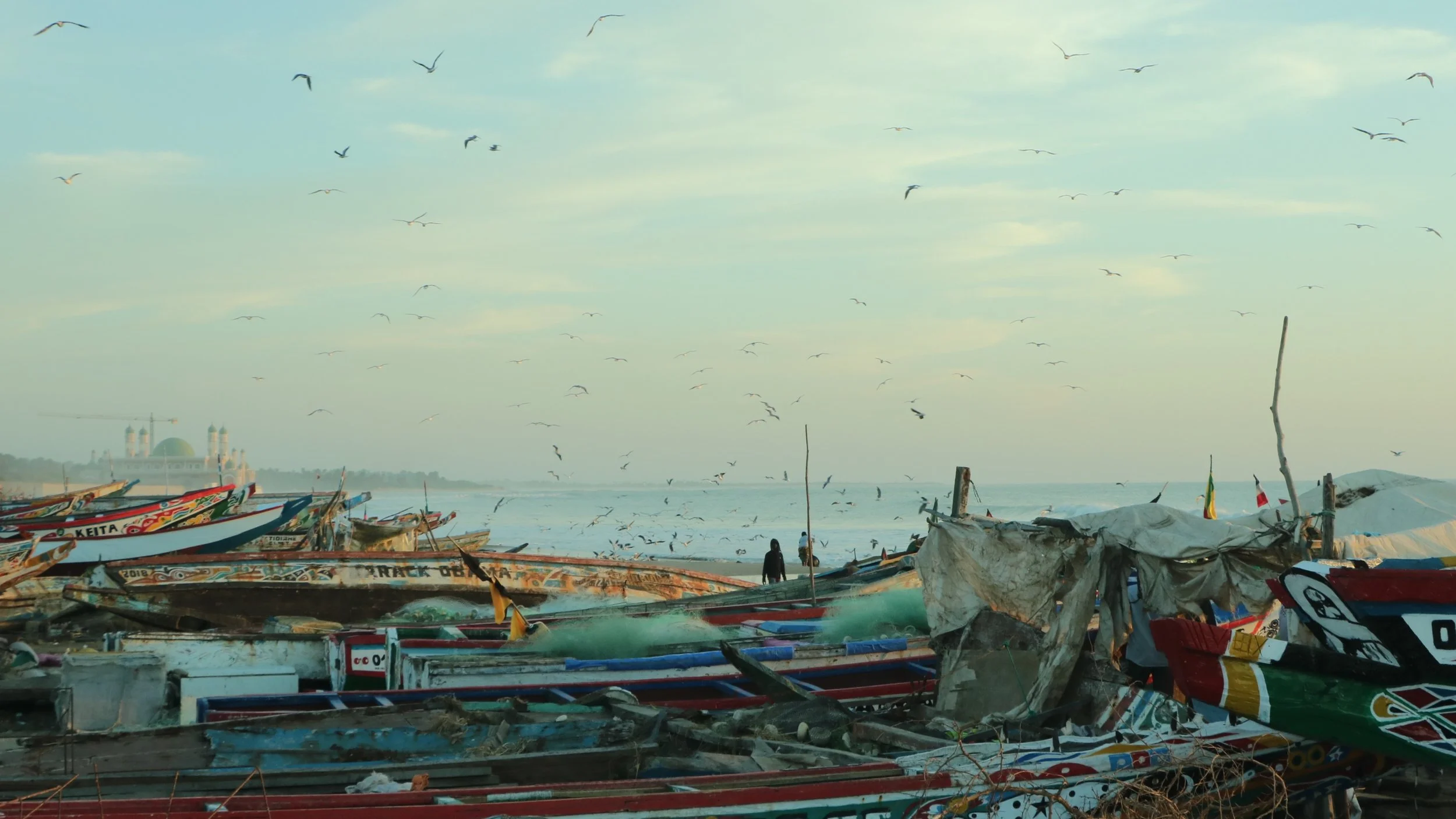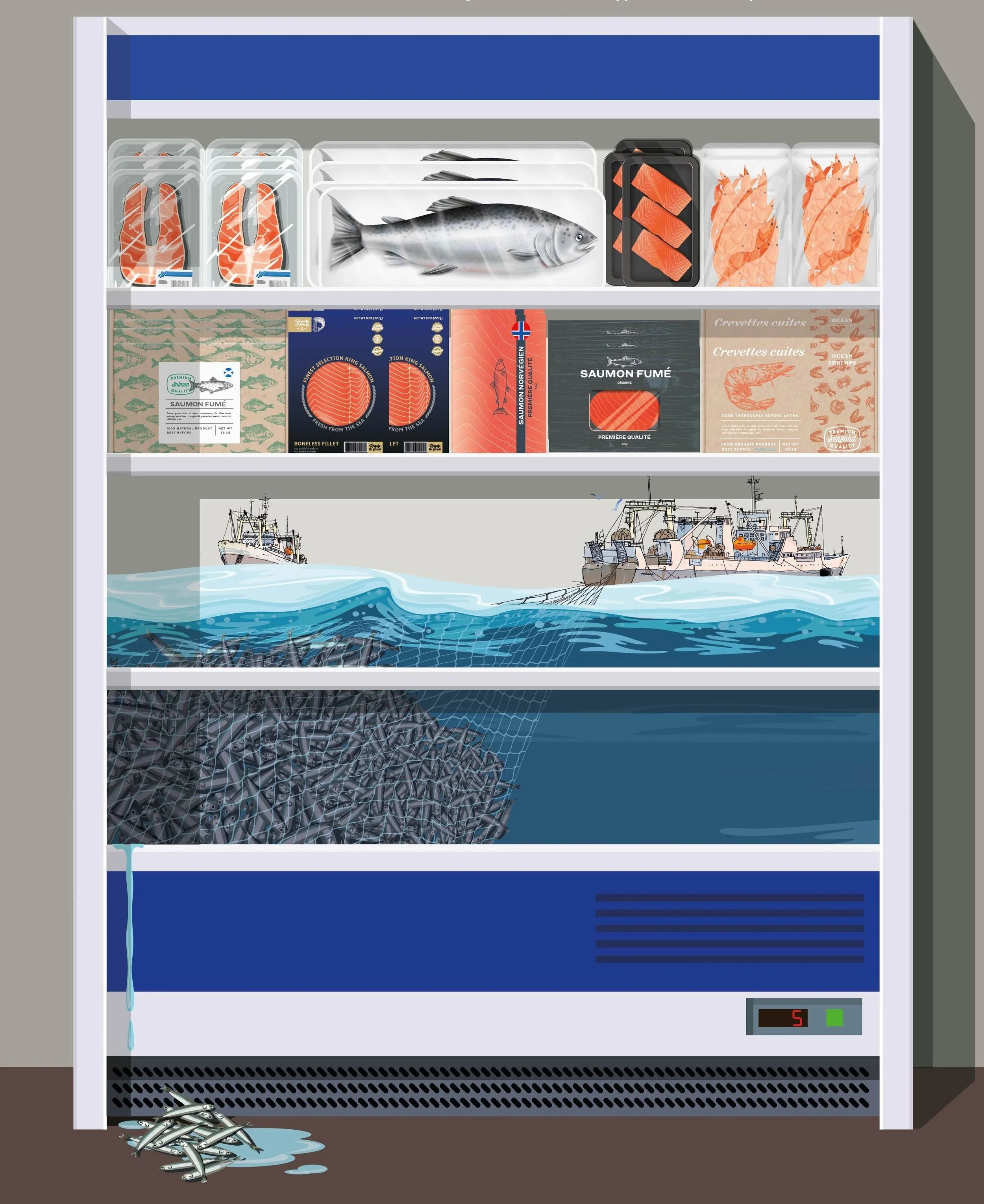The Grand Béréby Marine Protected Area will cover about 2400 square kilometers of ocean and will include a 54 km stretch of coastal water, to be “free from industrial fishing”. Besides vital fisheries, the area is home to endangered populations of leatherback, olive ridley and green sea turtles and threatened populations of sharks and rays.
When people are starving, footage of fresh fish used for fishmeal is disturbing
Fishmeal and fish oil production in West Africa destroys the region’s resources to the benefit of foreign countries
Something cool for Côte d'Ivoire women fish processors will give them more power in the marketplace
Access to refrigeration is difficult for women in fisheries in many West African countries. With a first trial in San Pedro which has guaranteed the supply of fish to women in Abidjan, now it’s the Grand Béréby women fish processors who are expecting a refrigerated truck, a container and an ice machine. An article by Rich Press.
EESC: “Aligning EU food production with SDGs requires legislation to ensure sustainable sourcing”
Looming clouds in the Gambian coastal skies
In this story by Béatrice Gorez and Dawda Foday Saine and first published in the Yemaya magazine in November, the authors look at the obscuring future of women in fisheries in Gambia as the dense fumes of fishmeal factories are being regurgitated into the environment. Fishmeal factories compete with women for access to small pelagics, and encourage overfishing and illegal fishing.
Blue Economy: MEPs call for a “balance” between new sectors and traditional activities, particularly small-scale fisheries
Discussing the draft of an own-initiative report, the European Parliament PECH committee reminds the European Commission that artisanal fisheries are the most vulnerable and fragile sector of the Blue Economy and insists on the strategic role of aquaculture and fisheries as providers of healthy food and jobs for the future.
CAOPA celebrates World Fisheries Day and commmits to work for sustainable small-scale fisheries
"Small in scale, big in value", IYAFA is officially launched!
When the fish do not turn up: seeing the concrete signs of climate change
“Finance in Common”: public development banks ignore the communities their investments have an impact on
The Finance in Common (FiC) summit will be discussing food security and agribusiness, supposedly building on the UN Food Systems Summit, for which civil society already expressed concerns. On this occasion, more than 270 small-scale producers, indigenous peoples and civil society organisations, including CFFA, publish a joint statement.





















